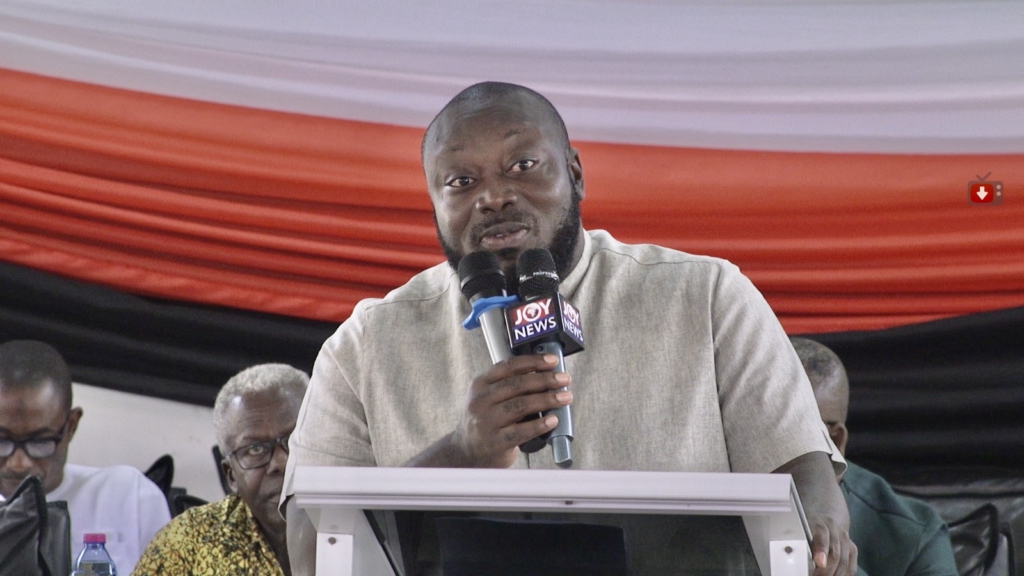George Opare Addo’s test: Serving Ghana’s youth beyond party lines
The youth are like Wi-Fi—if you don’t invest in a strong connection, you’ll end up with a weak signal and a lot of frustration.
In Ghana, we’re sitting on a goldmine of untapped potential, with young people full of ideas, energy, and the occasional questionable TikTok challenge.
That’s why the appointment of George Opare Addo as Minister for Youth and Empowerment matters. It’s a decision that speaks volumes about how we see our young people and how seriously we take their concerns. But here’s the thing: with great opportunity comes great responsibility.

And this moment demands that George Opare Addo rise above the noise of partisanship and serve all the youth of Ghana.
George Opare Addo: A Great Choice for Youth Minister?
My primary reservation lies in his age. Being in his late 30s or early 40s, George Opare Addo is approximately 20 years older than the average university student. He does not fall within the United Nations definition of youth (15 to 25 years) nor Ghana’s broader definition (15 to 35 years). For a Ministry of Youth, I had hoped for leadership that is of the youth, by the youth, and for the youth—a leader who could genuinely represent the demographic’s lived experiences.
However, I cannot fault Opare Addo’s personality or track record. Despite not being a member of his party, I find him likable. His tenure as the NDC’s National Youth Organizer was remarkable, demonstrating his ability to mobilize and engage young people effectively.
For decades, Ghana’s young people have felt overlooked, their voices drowned out in the din of political rhetoric and empty promises. Ministries intended to serve them have often been co-opted by other priorities and politics, focusing more on other interests than on solving real problems.
George Opare Addo’s appointment brings both promise and peril. As the National Youth Organizer of the NDC, he has a deep understanding of youth mobilization and the power of collective action. But that same political background raises a critical question: Can he lead a ministry that serves all of Ghana’s youth, or will the ministry become, in practice, an extension of the NDC’s youth wing? Imagine the danger if this becomes a trend in our politics—where the youth ministry becomes the playground of the incumbent party’s youth wing.
With careful oversight, a commitment to inclusivity, and a focus on national rather than party interests, George Opare Addo has the potential to rise above partisan politics and lead a transformative Ministry of Youth Development and Empowerment. If anyone older than the youth demographic can do the job well, George Opare Addo is certainly among the best choices.
Let’s be clear—this isn’t just about political affiliations. It’s about trust. It’s about whether young people from every corner of Ghana, regardless of their background, feel like this ministry represents them, too.
The Danger of Partisanship
History teaches us that when public institutions become overly partisan, they lose their ability to serve the people. The Ministry for Youth and Empowerment must not fall into that trap. It cannot be a space where resources are distributed based on political loyalty. It cannot exclude voices that challenge the status quo. It must not prioritize party politics over national service.
When youth programs are tied to party agendas, we all lose. Talent is stifled. Innovation is overlooked. And the brightest ideas never see the light of day because they come from someone on the “other side.”
If this ministry becomes a tool of partisanship, it won’t just fail to serve the youth—it will deepen the cynicism that so many young Ghanaians feel about politics and governance. The risk is particularly high given Opare Addo’s role as Youth Organizer of the NDC. Naturally, there will be pressures to satisfy loyalists. But that is precisely the danger he must guard against.
Putting Ghana’s Youth First
We saw this shift play out in the recent elections, where the NDC moved from struggling in many tertiary institutions to sweeping victories over the NPP. And they did this despite big-ticket policies like Free SHS and the restoration of nursing trainee allowances.
What this tells us is that the young people of Ghana are not just looking for promises or party loyalty. They are looking for real solutions, for leaders who will listen, and for policies that meet them where they are. They care about what works—and they will vote for what moves them forward.
George Opare Addo’s test is simple, but it’s not easy. He must prove that this ministry isn’t about party lines—it is about progress for the youth. He must rise above the partisanship that too often defines our politics and focus on what matters most: the aspirations of young people across this country.

Because at the end of the day, this isn’t about NDC or NPP. It’s about Ghana. It’s about who we are and who we want to be. And if we can get this right—if we can build a ministry that truly empowers our youth—then the ripple effects will be felt for generations.
So let’s support him while holding him accountable. Let’s expect more. And let’s remind ourselves that the future we want for our youth isn’t just a political promise—it’s a responsibility we all share.



